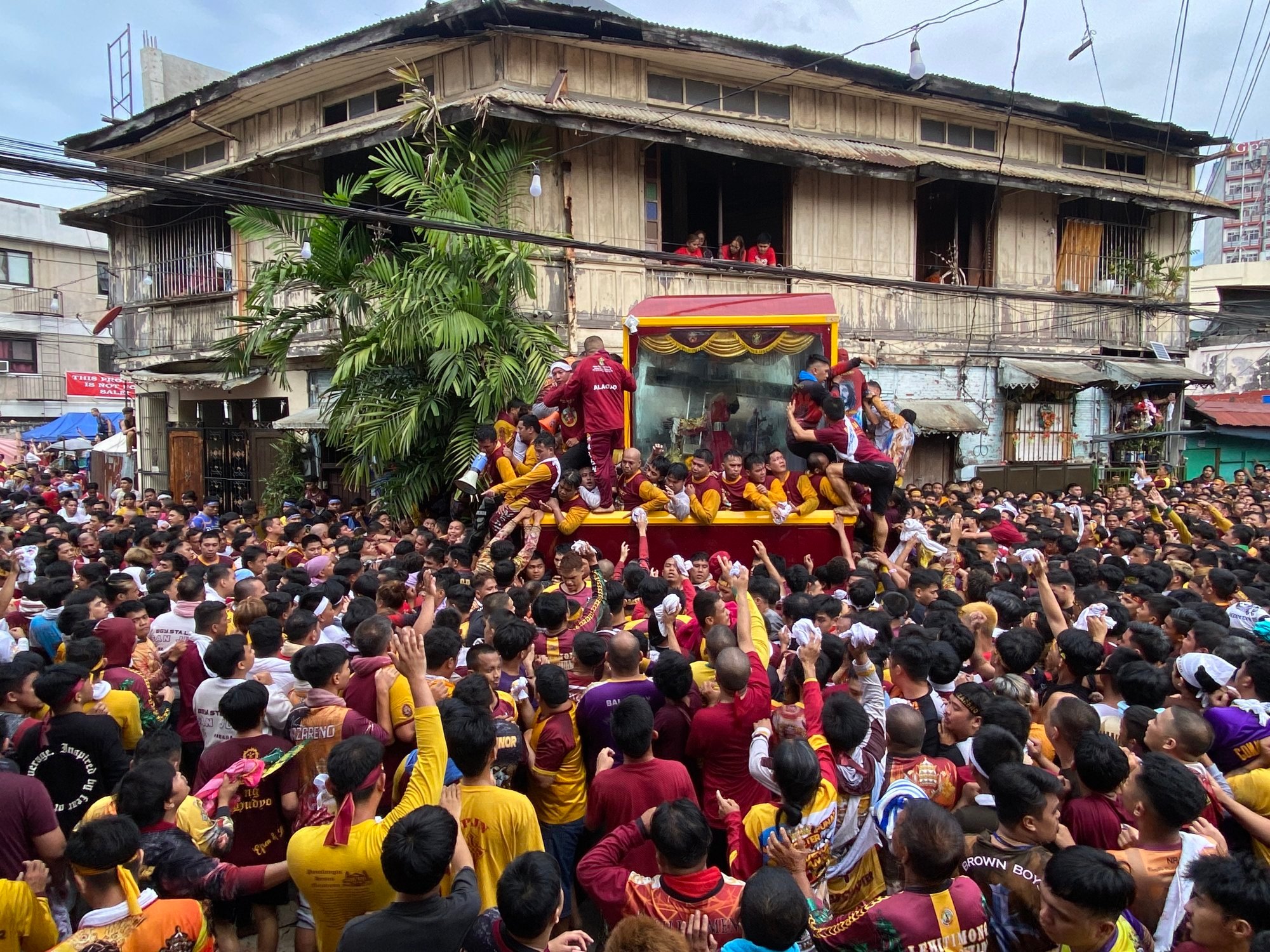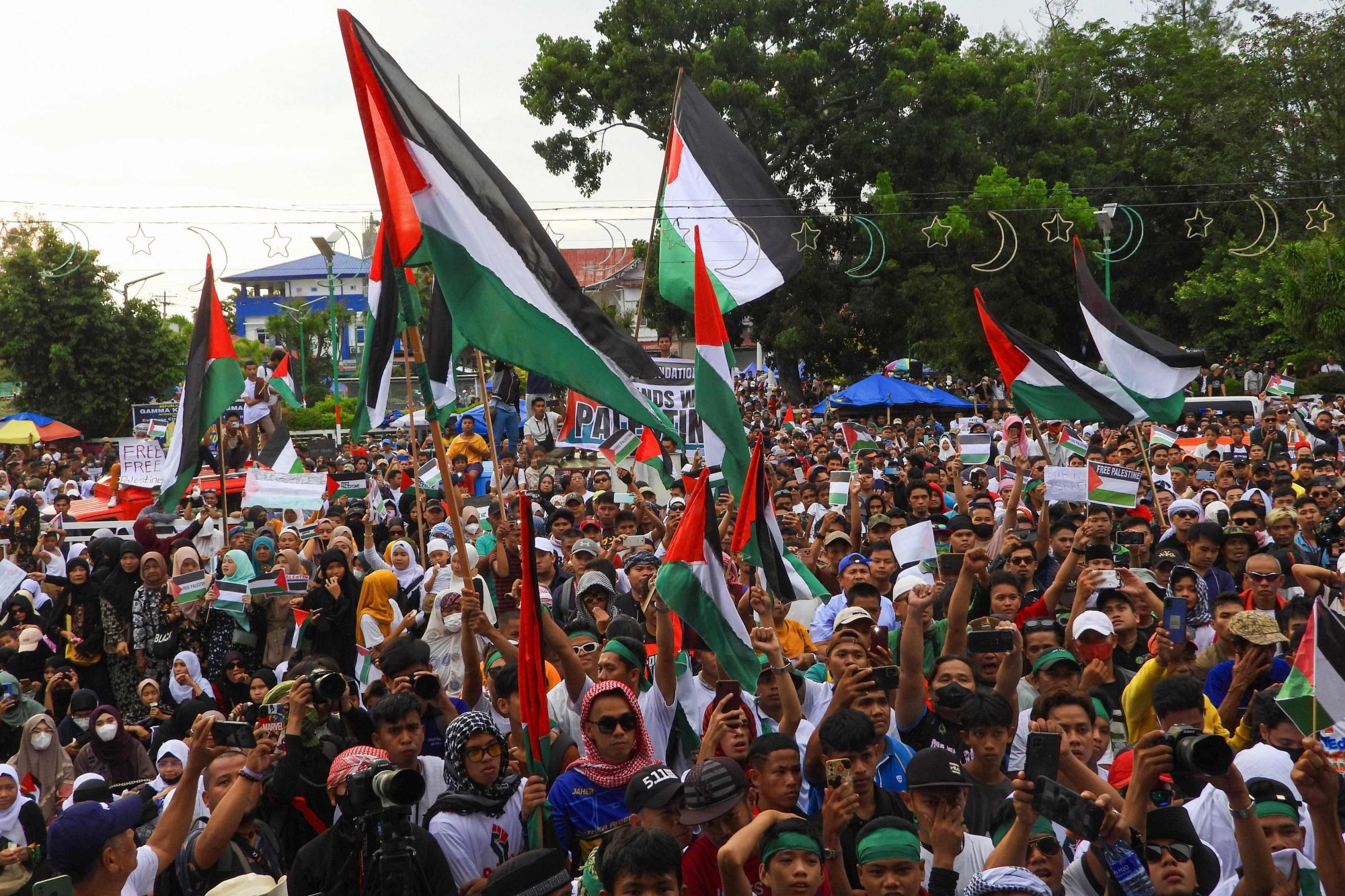
In Christian-majority Philippines, divide over Israel-Gaza war down to more than just faith
- Many Christians identify with ‘Israel being the promised land’, but economic reasons are also behind their support for the country, observers say
- Those in the pro-Palestinian camp include Muslims, rights activists and young Filipinos who have gained sympathy for their cause on social media
“It seemed like a nice way to use my talents and to help this need that is so urgent,” said Jennifer, a historian who asked to use a pseudonym “to avoid harassment”.
She chose the watermelon design after learning that “watermelons are symbols of Palestinian resistance because they mimic the colours of their flag”.
Jennifer managed to raise 7,600 pesos (US$450) with this crocheting project for the refugees and for the United Nations’ Children in Gaza crisis campaign.

“[Israelis] have the right to make incursions into the West Bank and Gaza to retrieve their hostages, but they don’t have the right to indiscriminately kill civilians, which is what they are doing,” she said.

A lawyer, lawmaker and former foreign secretary, Locsin has since deleted his post and apologised, but a local Muslim group has filed a disbarment case against him, and the department he used to head has distanced itself from his post.
According to Jose Antonio Custodio, a defence analyst and fellow at the Consortium of Indo-Pacific Researchers, Filipinos are emotionally invested in the conflict because “from the formative years of every Filipino-Christian, Israel and the Jews play a very significant role” in shaping their world views.
“The religious highlight for a Filipino-Christian is to make pilgrimages to Israel aside from Rome,” the 56-year-old said.
Data from Israel’s tourism ministry showed 34,000 Filipinos visited the country in 2019 and even more were expected to arrive last year – based on the 19,300 Filipinos who visited from January to June – until the war broke out.
‘Israel is manna’: Asia’s migrant workers return despite Gaza war dangers
Likewise, political activist Nuelle Duterte suggested the heated discourse among Filipinos over the Middle East conflict “boils down to religion and race”.
“Perhaps it has to do with Filipinos, being Catholics and Christians, identifying with Israel being the promised land,” said Nuelle, a New Zealand-based psychiatrist whose uncle is Rodrigo Duterte.
“Based on comments I read [online], there’s an attachment to biblical Israelites, a belief that the bible is a historical book which says Israel belongs to people of Jewish faith, and prejudice towards Muslims and people from the Middle East [Arabs] are the core reasons for people’s pro-Israel stance.”
The belief that Jews are the “chosen people” destined to occupy the Holy Land and build a “third temple” in Jerusalem to replace the second one destroyed in the 7th century is shared by some Christian Filipinos as part of an apocalyptic prophecy involving the return of the Messiah.
Popular support for the Palestinian cause is stronger in the Philippines’ south, with thousands of people joining demonstrations against Israel’s actions in places like Cotabato City on the island of Mindanao. Smaller rallies have taken place in Manila, mostly led by human rights activists.

Custodio said the support for Israel could stem from the country being a source of economic betterment for thousands of Filipinos. “[Some] 30,000 Filipinos work as caregivers in Israel and they support hundreds of thousands of Filipinos back in the Philippines,” he said.
Walden Bello, an adjunct professor of sociology at the State University of New York at Binghamton, noted that social media had changed the perspectives of younger Filipinos from their parents’ generation because it helped elevate the narratives of the Palestinian people.
Government statistics on contractual deployments appear to support Bello’s assessment, with data showing that of the 1.96 million overseas Filipino workers on short-term work contracts in 2022, 54.8 per cent worked in Arab countries.
‘Unbelievable loyalty’: Filipino nurse stayed with patient during Hamas attack
“I get more pushback from anti-Digong people regarding my thoughts on Gaza and Palestinians,” she said, referring to Rodrigo Duterte’s nickname. “I’ve been told I’m exactly like Digong because they think I’m pro-terrorist and don’t care about the murders on October 7.”
“It’s interesting to me how the people who promote continued mass killing of Palestinians in Gaza can’t see how similar they sound to Digong, who spearheaded the mass killing of drug addicts and pushers in the Philippines,” Nuelle said.

